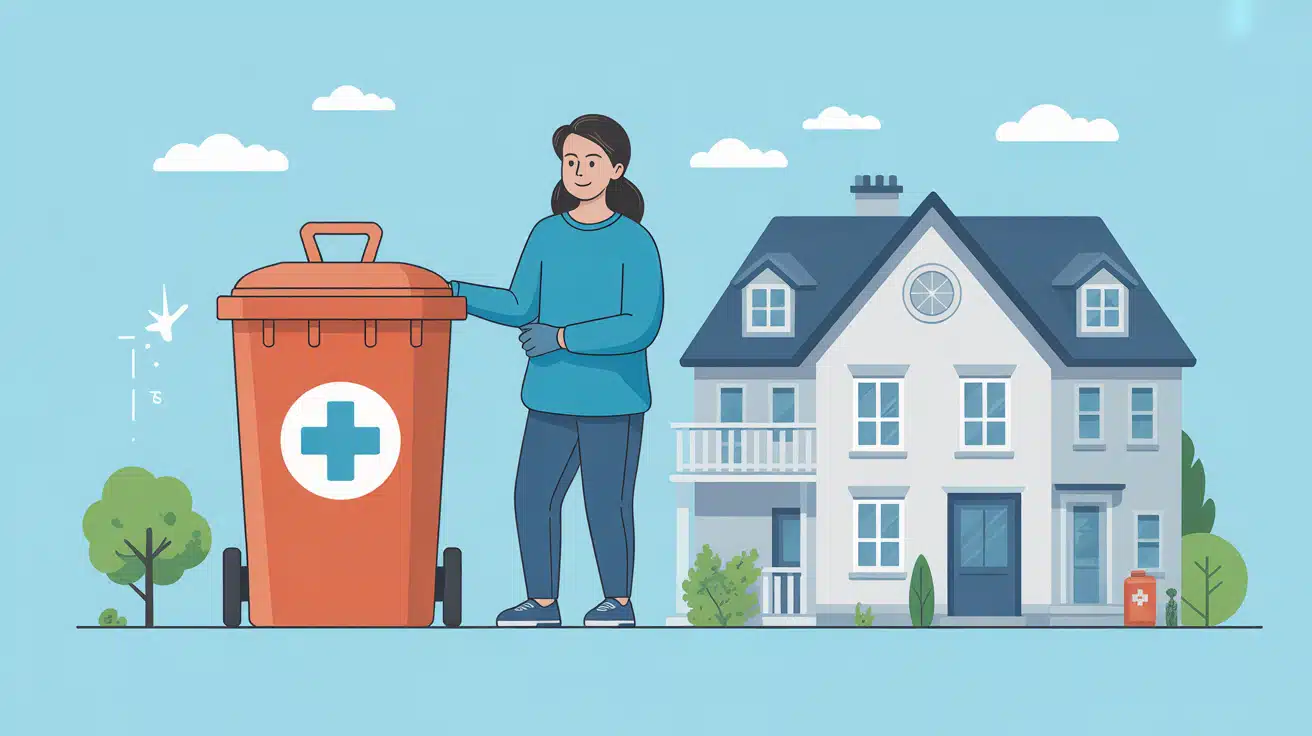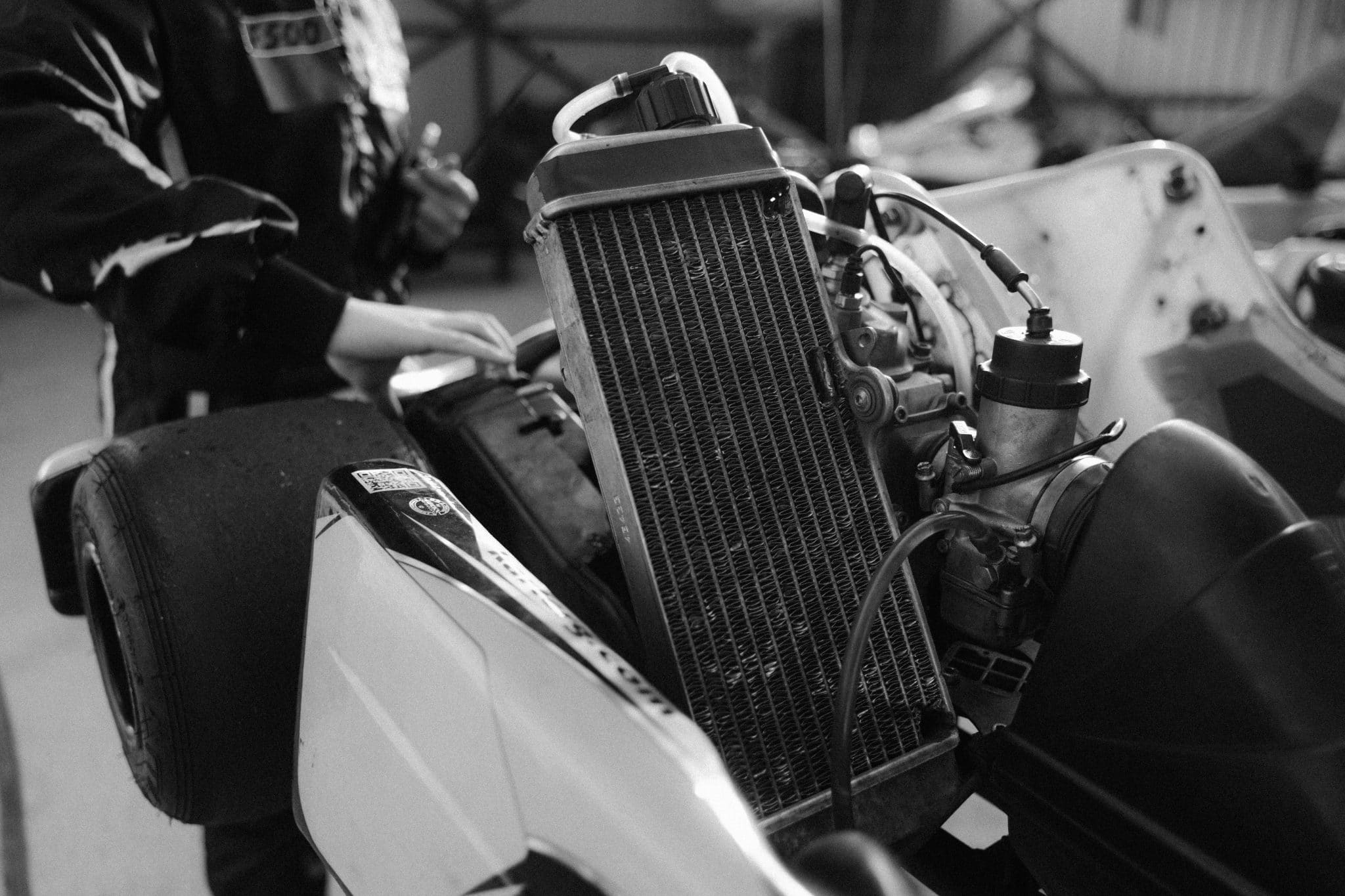The practice of home healthcare and self-medication is increasing as it is made more convenient by advances in technology. As the aging global population grows, more medical waste is being generated for their treatment and care than ever before.
Medical waste, such as syringes, bandages, and expired pills, is no longer limited to healthcare facilities. Even residential communities are facing the challenges of proper medical waste disposal.
Housing societies are great places to raise or start families. However, a lack of proper waste management can be a threat to the community and the environment. Each resident plays a significant role in managing the health and hygiene of the community.
Apart from the health and environmental concerns, improper handling of medical waste can even lead to legal penalties. In this blog, we will explore the different laws regarding medical waste and how residents and housing associations can play their part in safe disposal practices to create a healthy and sustainable community.
What is Medical Waste?
Waste generated during the diagnosis, treatment, and care of humans and animals is considered medical waste. As technology makes huge strides in medicine and other essential industries, home treatments and at-home care for chronic illnesses and the aging population are becoming more common. This means medical waste is no longer limited to medical facilities such as clinics, hospitals, laboratories, and research centers.
Medical waste from residences usually includes used needles, unused or expired medication, bandages, and PPE. Such waste might contain pathogens, cause injuries, or release toxins. Some types of waste have the potential to spread infections like HIV and hepatitis.
They also affect the surrounding environment, endangering wildlife by polluting soil and water resources. This waste needs proper disposal laws and practices to minimize the risks of injuries and infections.
Laws Regarding Medical Waste Disposal
Considering the risks of medical waste for human and environmental health, many local and federal agencies are involved in medical waste management. Several agencies, such as the Environment Protection Agency (EPA), the Centers for Disease Control and Prevention (CDC), OSHA, and the FDA, along with local bodies, are involved in regulating medical waste.
They have formulated laws and regulations regarding handling, storing, transporting, and disposing of medical waste. While most of these rules and practices apply to medical facilities, they must also be followed by residential communities that generate significant medical waste.
Classification of Medical Waste
Medical waste has been categorized into several types based on its characteristics and the risks posed.
- Infectious Waste: Any medical items or bodily fluids that contain pathogens.
- Pharmaceutical Waste: Unused, expired, or leftover medications.
- Sharps Waste: Waste like needles and scalpels that can puncture the skin.
Compliance Issues
Failure to comply with regulations of local agencies and federal laws can result in fines and legal action. Residents and housing communities should comply with safety guidelines set out by regulatory agencies.
Despite the laws and measures to regulate medical waste, housing communities still fall behind in proper disposal due to a lack of awareness and infrastructure. This gap allows medical waste to enter water sources and landfills, polluting the environment and threatening public health.
The Role of Residents
Large housing societies face the challenge of managing a large volume of medical waste from different homes. While the waste from a single home can be managed easily, housing communities have a concentrated population of kids, the elderly, and people with chronic illnesses. This generates a variety of medical waste that varies in characteristics, and its improper disposal poses risks to the entire community.
Common violations in households include disposal of needles and used medication with regular trash and the failure to store medical waste properly. Such violations put cleaners and others in the community at risk of injuries and infections.
Responsibilities of Residents
Waste management laws and local municipal guidelines require residents to segregate medical waste at the source and dispose of it through designated channels. Some local bodies mandate designated bins in apartment complexes for medical waste.
Each individual and household properly handling medical waste should limit its exposure to the community. All the residents should be made aware of proper storage, handling, and disposal practices.
Housing communities should have rules and regulations that residents must abide by to ensure health and hygiene in the community. Residents should demand proper infrastructure, such as collection points, color-coded bins, and other resources, to properly follow disposal practices. They should report if other residents violate any rules.
Active participation of residents is crucial to the success of initiatives run by housing societies and municipal corporations. Otherwise, even the most effective practices and policies can go to waste. Waste management is a collective effort that is sustainable with the effort of each household.
The Role of Housing Committees
Housing committees can regulate medical waste in their communities by bridging the gap between the residents and municipal corporations. Housing committees should focus on the following initiatives for medical waste disposal.
Raising Awareness
Housing committees can generate awareness regarding the risks of medical waste and the benefits of safe disposal practices. They can utilize flyers, posters, workshops, and newsletters to educate the residents about handling, storage, and disposal of medical waste. Utilize resources like community WhatsApp groups and notice boards to share regular tips and reminders.
Setting up Designated Spaces
Housing communities can set up designated bins or collection stations for medical waste. DOT-approved, puncture-resistant, and leak-proof containers for sharps and specific color-coded bins should be installed to segregate different types of waste. Maintain cleanliness and hygiene in the collection spot with regular cleaning, pickups, and making hand sanitizer and first aid kits available for emergencies.
Partnering with Disposal Services
The housing committee should partner with professional waste management companies for their experience and expertise in the field. Such services use advanced technology and techniques to properly pick up, transport, and dispose of infectious waste. They will keep your community clean and healthy with regular pickups while ensuring that waste is stored and disposed of in compliance with local and federal laws.
Safe Practices for Individual Households
Each household that generates medical waste should be responsible for its handling and disposal. Following safe practices helps to protect the family, the entire community, and the environment from the harmful effects of medical waste.
- Have color-coded and labeled containers or bins to segregate different types of medical waste. Segregation prevents contamination and assists in the proper disposal while minimizing risks of infection and pollution.
- Use puncture-resistant containers for sharps like needles and lancets to prevent infections and injuries. Clearly label them and keep them out of reach of children.
- Do not flush pharmaceutical waste down the toilet or mix it with regular trash. You can return it to pharmacies or municipal corporations via different take-back programs to prevent misuse and pollution and reduce waste.
- Infectious waste such as contaminated gloves, bandages, and cotton should be stored in leak-proof containers and labeled.
Ensure Compliance with Medical Waste Disposal Laws
As the convenience of healthcare and treatment at home increases, the responsibility to properly manage medical waste also increases. Improper disposal is a threat to each family, community, and the overall environment. Creating awareness and following safe and responsible medical waste disposal practices prevents health hazards and environmental pollution.
Individuals, housing committees, and municipal corporations should work together to create a sustainable community and lifestyle compliant with the law. Partner with a reliable waste disposal company to get the best insights and practices for waste management in your community.








